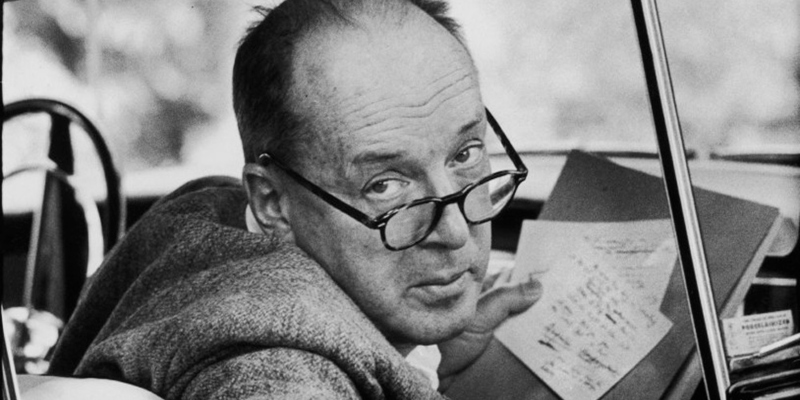
Was Nabokov’s Love of the Cinema a Way to Survive Exile?
From The History of Literature Podcast with Jacke Wilson
For tens of thousands of years, human beings have been using fictional devices to shape their worlds and communicate with one another. Four thousand years ago they began writing down these stories, and a great flourishing of human achievement began. We know it today as literature, a term broad enough to encompass everything from ancient epic poetry to contemporary novels. How did literature develop? What forms has it taken? And what can we learn from engaging with these works today?
Hosted by Jacke Wilson, an amateur scholar with a lifelong passion for literature, The History of Literature takes a fresh look at some of the most compelling examples of creative genius the world has ever known.
After the October Revolution in 1917, a teenaged Vladimir Nabokov and his family, part of the Russian nobility, sought exile in Western Europe, eventually settling in Berlin, where Vladimir lived for fifteen years. His life then included some politics, some writing and translating, some recreational pursuits—and a lot of trips to the cinema, a burgeoning art form and cultural experience that fascinated him. In this episode, Jacke talks to Luke Parker about this period of Nabokov’s life, as explored in Luke’s book Nabokov Noir: Cinematic Culture and the Art of Exile.
________________________
Subscribe now on iTunes, Spotify, Google Podcasts, Android, Stitcher, or wherever else you find your podcasts!
History of Literature
Hosted by Jacke Wilson, an amateur scholar with a lifelong passion for literature, The History of Literature takes a fresh look at some of the most compelling examples of creative genius the world has ever known.



















